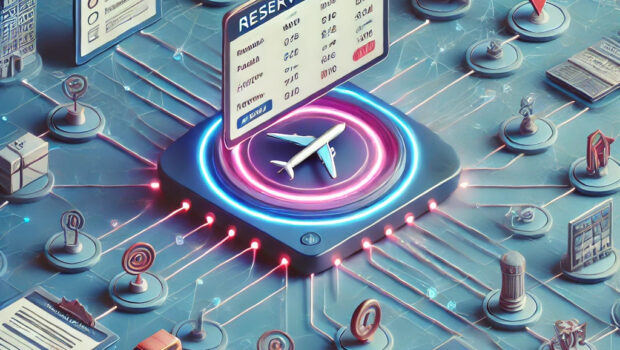The Worth of Unified Scheduling in the Contemporary Travel The sector
During the past few centuries, the travel sector has encountered advancements that are just dreamt of. Technological change is occurring fast and redrawing lines on how people book journeys and stay in their destination towns. A very important aspect of this change is the adoption by traveling agencies, hotels, and airlines of CRSs. In such a competitive and customer centric industry, these systems have facilitated streamlined processes in booking, enhanced service delivery, and resultant customer satisfaction. But what is central reservation? Put simply, this means a system through which all booking and availability information are consolidated and put out for access through just one platform. In this report, we shall delve into why centralized reservations would matter in the travel industries today, the benefits it brings to centralized reservation, and, indeed, how it actually upgrades the customer experience.
Meaning of Centralized Reservations
A centralized reservation system is that which is designed to build a compilation of booking information of different providers. This will keep the updating in real-time and thus ensure coordination. In a nutshell, CRS is like a hub where booking information is centralized among airlines, hotels, car hires, and tour operators, which in turn enables enterprises to prevent double bookings, update reservations in real-time, and provide the customer with one-stop-shop booking. The departments that are involved in the process of booking get the same information with the help of the centralized system, thereby helping in reducing errors and increasing the correctness of records.
The concept of CRS originated in the airline industry in the 1960s and has been widely used in all areas of travel. In this day and age, it is essential for any travel-related business with a high scale of operations. Aggregating data from several sources, a CRS makes it easier to manage reservations by reducing the complexity of the operation but at the same time enhancing accuracy and efficiency.
Improving Efficiency in Travel Operations
One of the reasons why centralized reservation systems are a must-have for the present times is their efficiency in travel operations. With a centralized system, all reservations, availability, and pricing can be controlled for all the channels including OTAs, direct bookings, and even traditional brick-and-mortar agencies through a single platform. Thus, with an all-inclusive management, a reservation manager will be able to control and monitor the inventory easily, ensuring that rooms, flights, or rental cars aren’t overbooked.
Additionally, a CRS minimizes the requirement for doing manual updatings and constant verifications on different booking platforms. Once a customer books through the system, it updaties all channels which hugely reduces the risk of human error as well as generally improves efficiency. This is beneficial to large hotel chains whereby thousands of rooms fall under a single brand name. In freeing the manpower of such complexities in operations, centralization of reservations allows most to focus on the customer and guest experience.
Simplify Customer Experience
As people digitize their world, an entire process of booking needs to be seamless. It is in this respect that centralized reservations are able to do this and make it streamlined as well as user-friendly. As a customer books a flight or room in a hotel, he wants to be sure his reservation is guaranteed and confirmed real-time. A CRS does this very easily, hence making the process easy and hassle-free from the point of view of the customer.
Centralized systems also provide access to rich customer profiles with past bookings, preferences, and specific needs, enabling them to offer more personalized experiences either through targeted marketing offers or customized services during their stay. The outcome will be an improved customer experience that creates loyalty and repeat bookings. In addition, availability, prices, and reservations can be accessed using self-service at the customers’ convenience in line with the needs of today’s high-tech traveler.
Minimizing Expenses and Maximizing Returns
One of the most important advantages is cost-effectiveness in centralized reservation systems. Automation of most processes and a reduction in the requirement for manual management helps a CRS cut the operational costs of travel businesses. For instance, airlines or hotels do not require large staff to manage bookings manually because the system automates these functions. A reduction in human error also minimizes the costs that occur due to mistakes, such as overbooked rooms or missed reservations.
Centralized reservations also enable dynamic pricing strategies that can maximize revenue. The CRS updates availability and demand data in real time, enabling travel providers to adjust prices based on real-time data, optimize occupancy rates, and maximize revenue per booking. This is particularly useful for airlines and hotels, where pricing can change based on peak times, seasonal demand, or special events. These revenue management capabilities result in higher profitability while delivering value to customers.
Increasing Market Reach and Visibility
The CRS not only maximizes internal operations but also increases the reach of travel providers. With integration with GDS and OTAs, businesses are able to market their offerings to a larger audience. When a traveler searches for a hotel or flight online, they mostly turn to major booking platforms. This way, connecting to those systems through a CRS means that availability and rates will appear on high-traffic sites with accuracy so that their chances of getting bookings will increase.
Such a system can also accommodate the ability to work across multiple languages and currencies which would improve their chances to accommodate international tourists. Thus a wider visibility and range helps small scale hotels and agencies who are otherwise confined into limited range of service within their locale. Thus these smaller firms can expand, gain international market opportunities for reservations through centralized sources to be much more aggressive towards their major competitors.
Data management and Analysis
A centralized reservation system gives way to huge amounts of data that travel businesses can make use of to better service and run their businesses. Advanced data analytics tools integrated with most CRS platforms enable monitoring of booking trends, customers’ preferences, peak periods of bookings, and identification of sources of high or low demand. All this information empowers travel providers to make informed decisions based on data, optimize marketing strategies, and predict demand even better.
Data analytics will hence unveil the most in demand room types, what market will be the most effective when it comes to making reservations, and through which means or channels do most individuals book. Thus, for all these pieces of information businesses will make relevant changes or updates on the offer or advertisements. Basically, what a CRS does is that raw data becomes a very useful tool in making strategic decisions by providing companies with competitive edges.
Centralized Reservations Support Sustainability and Reduce Negative Environmental Impact
Increased role of sustainability in the travel industry, CRSs can enable support for green. A CRS minimizes the industry’s environmental footprint through consolidation of information while preventing the need for physical paperwork. In fact, hotels can make check-in and check-out processes go digital, helping to reduce the use of paper to help in the generally more sustainable practice.
More to this, centralized systems make sure of energy savings due to optimal room booking and waste elimination. For instance, with a quality CRS, better room occupancy handling by a hotel saves its energy wastage that it would otherwise incur unnecessarily. This approach towards sustainability will benefit the environment but win hearts for green travelers, who are most likely to patronize an organization which adheres to their philosophy.
Conclusion
Centralized reservation systems are today the backbone of today’s travel business, providing numerous benefits that prove integral within a digital first, consumer-centric market. Already sensitized to notions of process efficiency and cost cutting, improving customer experience and boosting sustainability among the list of outcomes of CRS, it is revolutionizing how travel providers operate. By embracing the central approach, businesses in the travel sector can streamline their processes, expand their reach and deliver an exceptional customer experience. In an industry driven by the demands of convenience and customer satisfaction, centralized reservations become an operational tool yet, at the same time, represent a competitive advantage in the eyes of modern travelers.























I love the information; i never thought about it; thank you so much